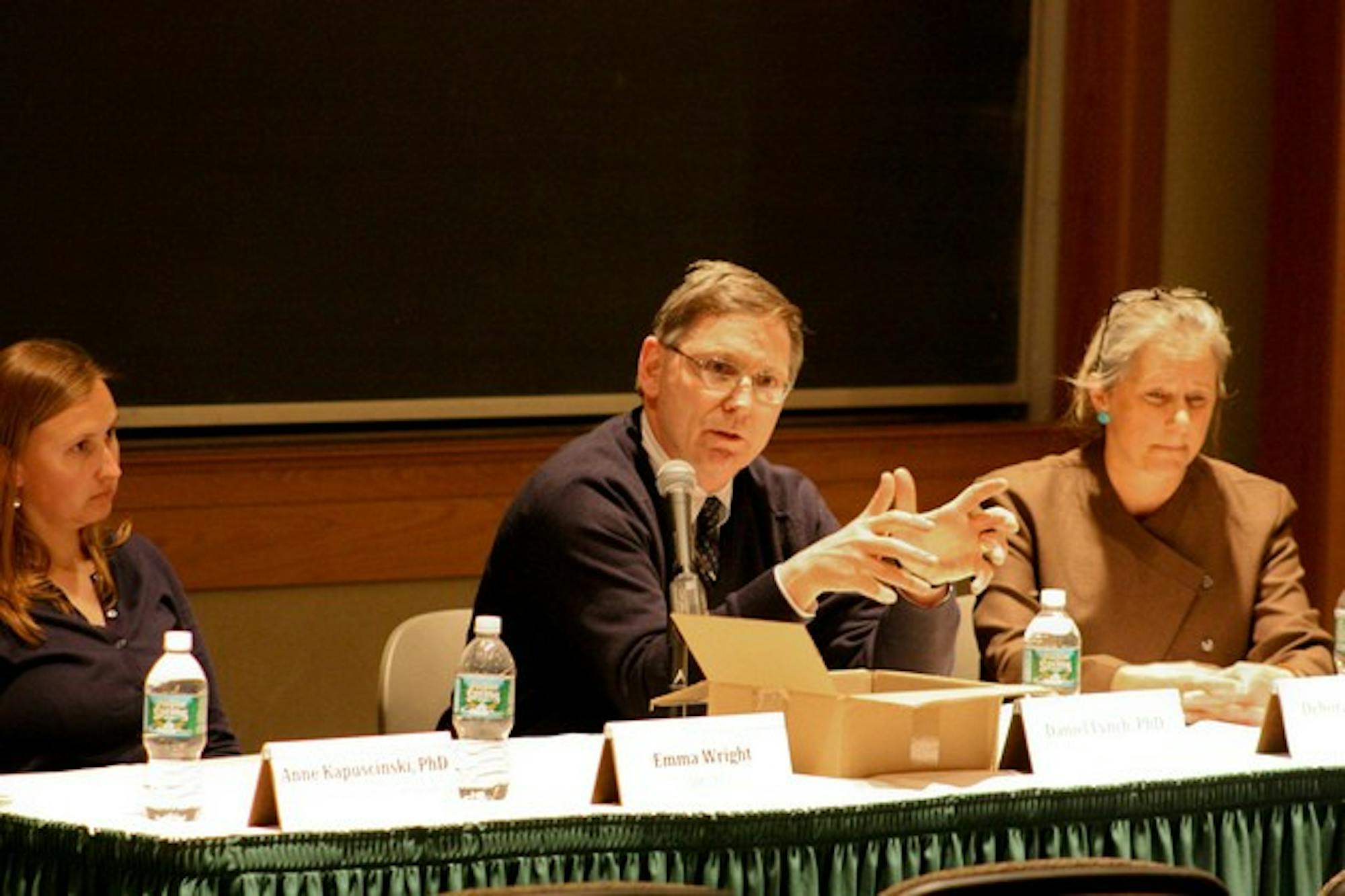The three panelists Emma Wright, a former Peace Corps volunteer and first-year student at Dartmouth Medical school, Deborah Peterson, co-founder of a Tibet-based environmental non-governmental organization, and Thayer School of Engineering professor Daniel Lynch discussed the relationship between human rights, health and environmental issues, as well as the role that health professionals can play in improving these aspects of global human rights.
"Natural resources underpin everything we do and they are the framework within which we flourish on this planet; they are the necessary footing and [the rights of access to them] imply responsibilities," Lynch said. "For us as professionals and pre-professionals, the challenge is to get that responsibility understood and applied."
Three kinds of institutions government, corporate and professional are responsible for providing humans with rights to sanitary environmental resources and decent health provisions, Lynch said. To this end, Lynch has drafted a Declaration of Stewardship Responsibilities he hopes the world will adopt, he said.
"[The Declaration] is in the form of the Declaration of Human Rights of 1948, but uses the word responsibility' instead of right'," Lynch said.
The synthesis of human rights and environmental and health-related problems requires an understanding of the inherent nature, economic value and rights to ownership of natural resources, Lynch said.
"Between nature and value is a sort of intellectual burden; it's an intellectual thing," Lynch said. "But between value and ownership is a moral content."
Professionals in the medical, engineering and legal professions should be responsible for improving human rights, Lynch said. Professionals at the top levels tend to be progressive and receptive toward improving access to basic amenities like food, water, housing and a healthy environment, Lynch said.
Peterson, on the other hand, said that most of the responsibility for improving access to basic amenities relies on local people who have professionals or non-governmental organizations working with them.
"You can't divorce yourself from the community if you want to succeed," Peterson said.
The Tendel Group, an environmental NGO based in Tibet which Peterson co-founded, does not receive much assistance from the Chinese government, Peterson said. Instead, it relies heavily on Tibetan locals to function, he said.
When NGOs cannot cooperate with the government, volunteers must reach out to find new connections and methods of helping locals, Wright said.
"If you are coming from the outside, just know that the people who you are appointed to work with are not always the people you end up working with," Wright said, citing her own experience while volunteering in the village of Wolongotosoba in Mali.
The first man Wright worked with in Mali later ran for mayor and took advantage of their professional relationship for his own political gain, she said. When Wright stopped working with the mayor, she had to rely on locals instead of government officials, she said.
All three panelists encourage medical school students not to fear the significant challenges facing international development.
"First of all, do the small thing," Peterson said. "Don't be paralyzed by your fear and examine your motives."




